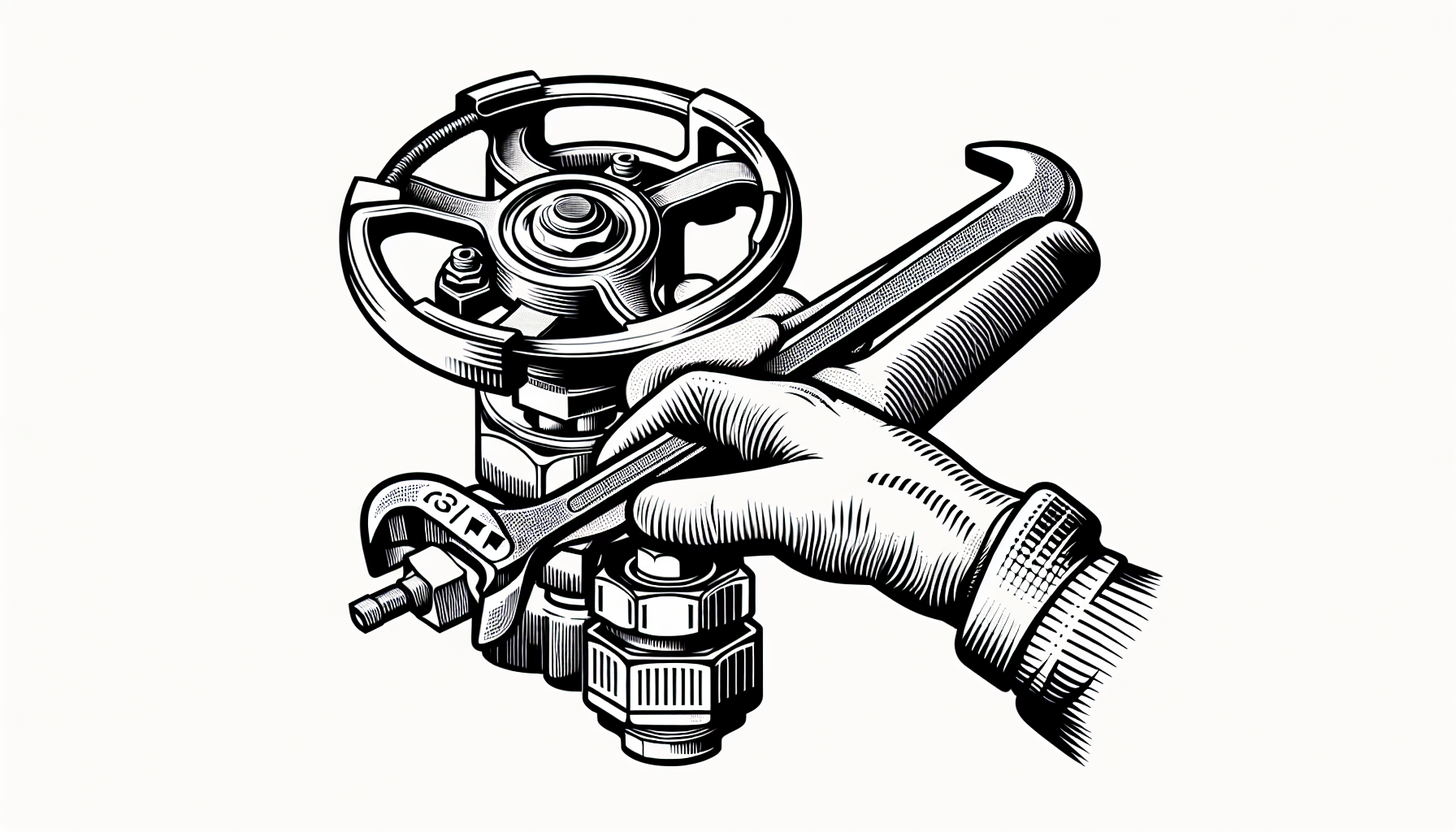So, you’ve had a plumbing issue at your home and you finally found a plumber to fix it. But as the job is complete, you start to wonder, can you actually refuse to pay the plumber? It’s a question that may cross your mind, especially if you’re unsatisfied with the outcome or the cost. In this article, we will explore the circumstances under which you may consider refusing to pay a plumber and the consequences that may arise from such a decision. Let’s dive in and tackle this dilemma together in a friendly and informative manner.
Can I Refuse To Pay A Plumber?
As a homeowner or renter, there may come a time when you find yourself in a frustrating situation with a plumber. Perhaps they provided subpar work or failed to complete the job according to your expectations. In such cases, you may wonder if it is possible to refuse to pay the plumber. In this article, we will explore the legal rights and responsibilities involved, how to determine fault and quality of work, contractual obligations, resolving disputes through mediation, seeking a second opinion, steps to take before refusing payment, negotiating solutions, small claims court as an option, documenting evidence, and seeking professional advice. By understanding these aspects, you can make an informed decision if you ever find yourself in a similar situation.
Legal Rights and Responsibilities
When dealing with any dispute related to a plumber’s services, it is essential to understand the legal rights and responsibilities of both parties involved. As a homeowner or tenant, you have the right to expect quality workmanship and adherence to industry standards. Plumbers, on the other hand, have the responsibility to perform their work with due diligence and professionalism. If you believe that the plumber has failed to meet these standards, it is crucial to gather evidence to support your claim before proceeding.
Determining Fault and Quality of Work
Before considering whether to refuse payment to a plumber, it is important to objectively evaluate the situation and determine fault. Start by assessing the quality of work provided. Consider factors such as whether the work was completed to industry standards, if it was done in a timely manner, and if it solved the initial plumbing issue. If you are unsure about the quality of the work or the plumber’s expertise, seeking a second opinion from another professional can provide valuable insight.
Contractual Obligations
To determine whether you can refuse to pay a plumber, you must review any contractual obligations established before the work commenced. If you and the plumber signed a written contract, carefully examine its terms and conditions. Pay close attention to any provisions related to payment, completion of work, and dispute resolution. Understanding the specifics of the contract will guide you in deciding on the appropriate course of action.
Disputes and Mediation
When you find yourself in a disagreement with a plumber and believe that refusing payment is the only option, it is advisable to explore other avenues before escalating the situation. Consider engaging in open communication with the plumber to discuss your concerns and attempt to reach a resolution. If direct communication fails, involving a mediator can often facilitate more productive discussions. Mediation is a cost-effective and less adversarial method of dispute resolution that allows both parties to express their perspectives and work towards finding a mutually agreeable solution.
Getting a Second Opinion
If you have doubts about the quality of the plumber’s work or their ability to rectify any issues, seeking a second opinion can offer valuable insights. Consult with another trusted plumber or a professional plumbing inspector to evaluate the original work performed. Their expert opinion can help you determine whether the original plumber’s work was subpar or if your expectations were unreasonable. This additional information will assist you in making an informed decision about withholding payment or pursuing other courses of action.
Steps to Take Before Refusing Payment
Before outright refusing to pay a plumber, it is crucial to take specific steps to protect your rights and document your concerns. First, carefully review the work completed to see if it adheres to industry standards and resolves the plumbing issue. If you have concerns or notice deficiencies, take photographs or video recordings to document any visible problems. Additionally, keep detailed records of any communication with the plumber, including dates, times, and summaries of the conversations.
Negotiating Solutions
If you find yourself dissatisfied with a plumber’s work or progress, consider negotiating a solution before refusing payment. Engage in open and honest communication, expressing your concerns and desired outcomes. This approach can often lead to a mutually agreeable resolution, such as the plumber rectifying the work at no additional cost or providing a partial refund. By being proactive and seeking a resolution through negotiation, you may avoid the stress and expenses associated with further legal action.
Small Claims Court
If negotiations, mediation, and alternative dispute resolution methods fail to produce a satisfactory outcome, taking the matter to small claims court may be an option worth considering. Small claims court provides a forum for individuals to present their cases without the need for legal representation. Before proceeding to small claims court, carefully evaluate the merits of your case, gather all relevant evidence, and familiarize yourself with the specific requirements and procedures of your jurisdiction’s small claims court.
Documenting Evidence
Whether you opt for mediation, negotiation, or legal proceedings, having proper documentation is crucial for supporting your position in any dispute with a plumber. Ensure that you have gathered and organized all evidence related to your concerns. This may include photographs, videos, invoices, contracts, emails, and any other relevant documents. Clear and concise evidence will strengthen your argument and provide a stronger foundation for your case.
Seeking Professional Advice
Navigating the complexities of a dispute with a plumber can be challenging, especially if legal concepts and procedures are unfamiliar to you. In such cases, seeking professional advice is highly recommended. Consult an attorney experienced in construction or contract law to help you understand your legal rights and options. Their expertise will provide guidance on the best course of action given your specific circumstances.
In conclusion, while refusing to pay a plumber should be a last resort, it is essential to understand your rights and responsibilities when encountering issues with their services. By objectively assessing the situation, seeking a second opinion, understanding contractual obligations, and exploring alternative dispute resolution methods, you can effectively navigate the challenges and find a satisfactory resolution. Remember to document all relevant evidence and seek professional advice when necessary to protect your interests.





